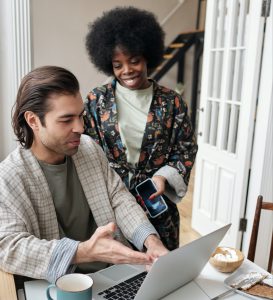The COVID-19 pandemic has created a challenging path forward for everyone, but some of the hardest-hit are elderly people, who are most at risk for serious complications from the virus. Even as shelter-in-place orders lift around the United States, the Centers for Disease Control and Prevention are still recommending that seniors limit contact with anyone outside their own households.
Loneliness — and the mental and emotional costs related to it — is already taking its toll on everyone. Time Magazine recently referenced a survey by SocialPro which found that about one third of American adults are feeling lonelier than usual due to coronavirus lockdowns, and seniors are especially at risk:
“Given their susceptibility to serious COVID-19 infections, older adults are likely to be even more cut off from outside life. NORC at the University of Chicago found the coronavirus pandemic has made about a third of adults 70 and older lonelier than usual.”
Many seniors feel isolated and alone in the best of times. Now, cut off from family, social activities and friends, these feelings may be exacerbated. Seniors could feel serious mental health impacts like depression, anxiety or even thoughts of suicide. But family, friends and other caregivers can help seniors through this time by taking deliberate steps to nurture the senior’s mental health. Here are seven strategies to try.
1. Stay in Touch
The best cure for loneliness is to show the senior in your life that you care about them. Even if you cannot physically be there with them, set a time each day for a phone or video call to check in, chat and even reminisce. Take a sincere interest in their well-being. Encourage them to reach out to friends and family and invite others to reach out to your aging loved one. As much as we encourage our elderly population to stay social and engaged, it is best to continue limiting in-person visits with friends and family to help reduce the risk of being exposed to Coronavirus. But regular virtual check-ins can go a long way in helping older adults avoid loneliness and feelings of isolation.
2. Use Tech to Stay Connected
Now is a great time to encourage the tech-resistant seniors in your life to get and stay connected. Social media and video conferencing are amazing tools that can battle seniors’ loneliness, and learning a new skill can help occupy their time. Consider getting them a tablet and walking them through how to use it to stay in touch with friends and family. You can also help them load games, e-books and other entertainment onto the tablet.
3. Get Active
The mind and the body are not separate from each other. Physical activity has a direct impact on mental health. When a senior is able to stay physically active, they sleep better and feel less anxious. Encourage your senior to get outside, if possible, and stay active within their personal limits.
Walking in the neighborhood or gardening in the backyard are great options for getting active outdoors. But if your loved one doesn’t have an outdoor area available to them, yoga, dancing or even walking in place can help them. If an outdoor area is available, consider doing the activity with your senior while maintaining a safe social distance. The bonus is these are all great forms of exercise and activity for everyone that can also help reduce stress.
4. Have Fun
Fun and entertainment can help nurture your senior’s overall mental health. Encourage them to do things they enjoy or to try out something new. Try having fun along with them. Get creative with social distancing or video conferencing to play games remotely. Adding fun to the daily routine can have amazing benefits for your loved one’s mental health.
5. Reach Out for Help
Being the primary caregiver or contact for an isolated senior can be overwhelming and exhausting under normal circumstances. But during this pandemic, it can be even more so. Look at the resources available to you and your loved one to determine if help is available.
For example, if your loved one is religious, you could ask their pastor, rabbi or other leaders to check in on them. If they visited a municipal senior center before the pandemic, ask the center’s director to give them a call. Interactions like these can add variety to the day and help your loved one feel less isolated.
Their healthcare provider can be another resource. If you have concerns about your senior’s mental health during this time, don’t hesitate to contact the health professionals involved in their care and relay your concerns. Telehealth options can keep office visits to a minimum while still providing much-needed care.
6. Consider a Caregiver
If you can’t check in on your aging loved one often, consider hiring a professional in-home caregiver to help with groceries, prescription pick-ups and other errands. In addition to physical tasks, caregivers also provide social interaction and variety, easing seniors’ state of mind and promoting better mental health.
Companies that provide this service are operating under strict safety guidelines to minimize seniors’ exposure to illness while still performing a vital service. Caregivers take every precaution necessary to safeguard the health and safety of themselves and their clients, including following established infection control protocols and being vigilant about protecting everyone from illness, be it the flu, COVID-19, or any other communicable disease.
7. Support Each Other
The aging loved one in your life has seen and experienced a lot. They are likely familiar with crisis, fear and loss. For some, this time will awaken past trauma while others will take a “this too shall pass” approach. The key to seeing them and yourself through this time is to stay interested, stay connected and support each other.
We will all be able to be in each other’s company again one day. When we do, it will be a joyous time of reunions. But until that time, the best tactic for getting everyone through these challenging times is to make sure your senior stays active, engaged and connected to the ones they love to help safeguard their physical and their mental health.








